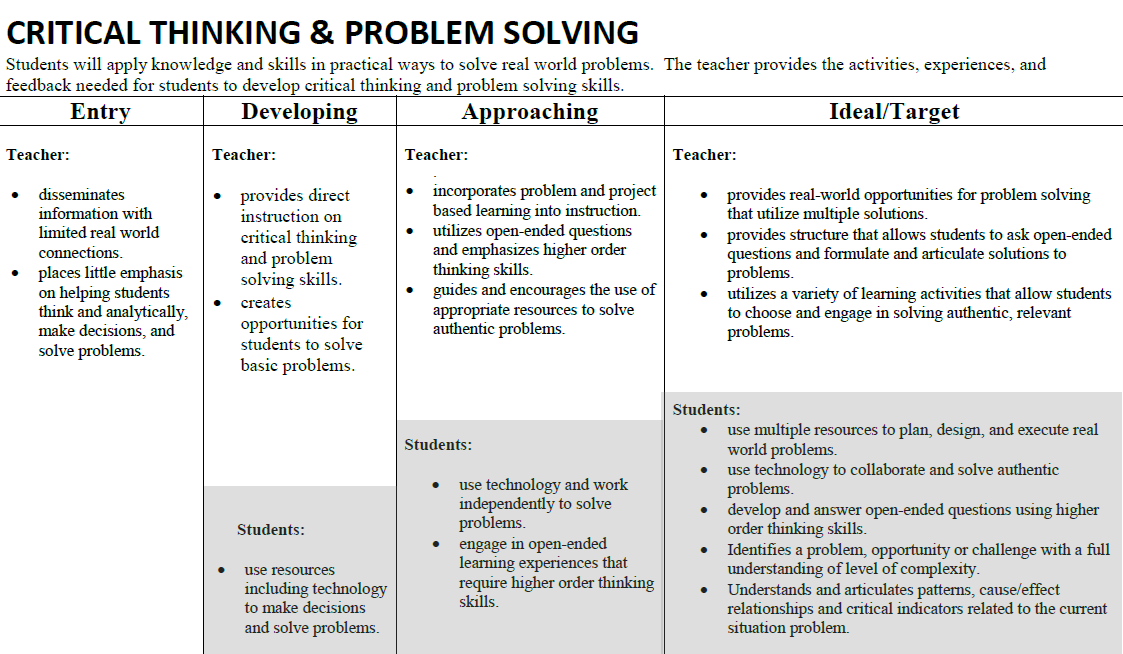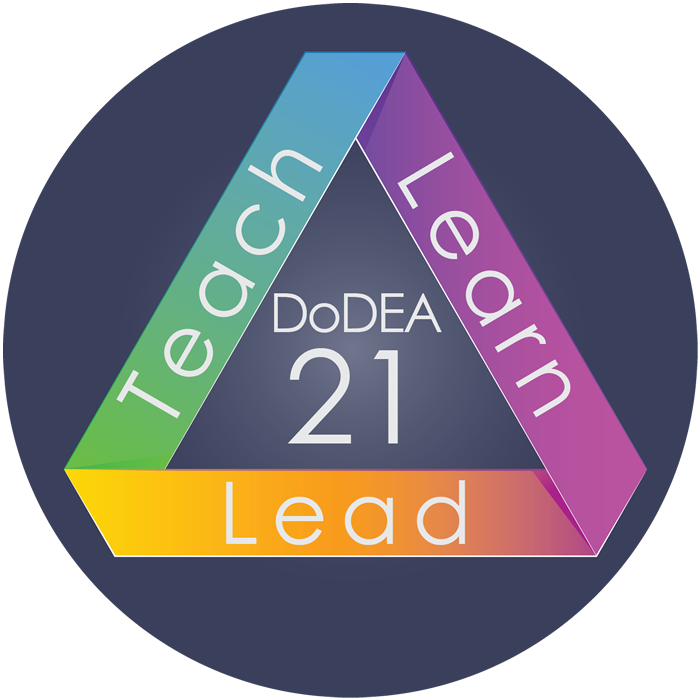21st Century Skills | Reflection and Evaluation Rubrics
The seven Reflection and Evaluation rubrics are designed for teachers and their students to use at the beginning of a lesson design and again at the end of the lesson cycle to evaluate the progress becoming a student-centered and student engaged classroom. As teachers select content and choose the best learner outcomes for a lesson, teachers engage in reflection about where they are in the process of teaching and preparation to engage students. Teachers then have students do the same. Each rubric supports the growth of a student-centered classroom where students become more engaged in the learning process. Click the icon on the right to see Full Screen Mode!
Critical Thinking and Problem Solving
Critical Thinking and Problem Solving is a habit of mind characterized by the comprehensive exploration of issues, ideas, artifacts, and events as well as applying knowledge and skills in practical ways to solve real world problems.
-
Critical Thinking and Problem Solving is a habit of mind characterized by the comprehensive exploration of issues, ideas, artifacts, and events as well as applying knowledge and skills in practical ways to solve real world problems.
-
Initiative and Entrepreneurship denote creative, inventive and resourceful ways individuals use to solve problems, search out, and strive for new innovations.
-
Oral communication is a prepared, purposeful presentation designed to increase knowledge, to foster understanding, or to promote change in the listeners' attitudes, values, beliefs, or behaviors. Written communication is the development and expression of ideas in writing. Written communication involves learning to work in many genres and styles. It can involve working with many different writing technologies, and mixing texts, data, and images. Written communication abilities develop through iterative experiences across the curriculum.
-
Collaboration across networks is the ability to work together with diverse groups to facilitate the exchange of ideas to achieve a goal, make decisions, and solve problems. Leading with influence is the ability to generate results collaboratively, in a variety of contexts without direct authority.
-
Agility and adaptability is being able to constantly adjust to changing demands by using a variety of tools to solve complex problems with responsiveness and flexibility. Handling disruption, rapid transformation, and reorganization of information is necessary for 21st century learning: “Learning to be comfortable with being uncomfortable”.
-
Accessing and analyzing information is the ability to know when there is a need for information and how to identify, locate, evaluate and effectively use that information for solving problems.
-
Curiosity and imagination is the capacity to synthesize existing ideas and to work creatively in ways characterized by innovation and divergent thinking.
Please click the link to see the Reflection and Evaluation Rubrics. 
![]()


